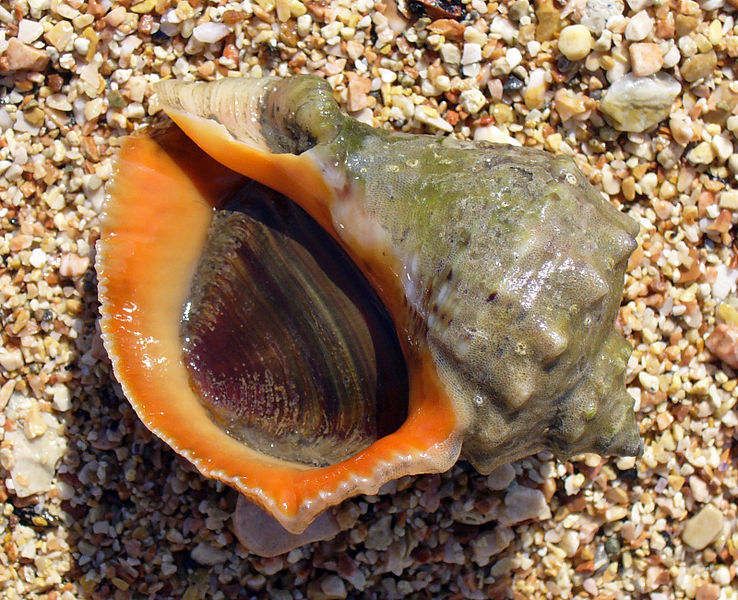The significance of a theory
/Australian Curriculum Level: Years 7-10
Strand: Science as a Human Endeavour - Nature and development of science
Content Descriptors:
- Scientific knowledge changes as new evidence becomes available, and some scientific discoveries have significantly changed people’s understanding of the world (ACSHE119)
- Scientific understanding, including models and theories, are contestable and are refined over time through a process of review by the scientific community (ACSHE157)
A technique often used by people when debating a scientific concept is the misuse of the term ‘theory’.
Science, like most other industries and professions, has specific terminology with very particular meanings. Depending on the context, the meaning of one term may differ greatly. A good example of this is the term ‘speculum’. If you are speaking to someone from the medical profession, or any woman who has had a pap smear at some stage in her life, they will assume that you are talking about an instrument used to examine the vagina. However, most birders will be able to tell you that the speculum is actually a patch of distinctly coloured feathers towards the back edge of the middle of the wing. Wikipedia even lists them as ‘Speculum (medical)’ and ‘Speculum feathers’ to distinguish the two meanings.
Similarly, the term ‘operculum’ has quite different meanings, even within the field of biology. Derived from Latin, operculum means a lid or covering, but this manifests in quite different forms if you are a botanist compared to a zoologist. For Eucalypts, the operculum is the ‘gumnut hat’ worn by May Gibbs’ Snugglepot and Cuddlepie. It is the hard cap that protects the flower until it is ready to open, and are quite spiky underfoot when you live near a blossoming eucalyptus tree. An operculum on a boney fish is the hard flap behind the head that protects the gills, while some aquatic snails use their operculum like a little hard door to seal their shell shut. A quick Wikipedia search also revealed that we even have an operculum in our brain!
So far, these are really just examples of different objects or structures with the same name, but a good example of a conceptual term that has distinctly different meanings in the scientific and general communities is the term ‘weight’. Most people have a good understanding of the concept of weight. It’s just how heavy something is. Isn’t it?
If you ask the average person how much they weigh, if they are prepared to answer you at all, they will likely give you a number of kilograms (or pounds, or stones or whatever other crazy imperial units there are out there). Ok, so here is the problem. Kilograms is the unit used to measure mass, the amount of ‘stuff’ in an object, not its weight. Weight is the amount of force an object exerts on the surface it is sitting on as a result of gravity acting on its mass (weight = mass x gravity). And, is it measured in Newtons, as are all forces.
Now, here on Earth gravity is said to be 1 (it’s our standard, this is where we live after all). You may be aware that other places in the universe experience different levels of gravity. In outer space, the affect of gravity is almost zero, which is why the astronauts in the International Space Station can float around. So when you multiple the affect of gravity on your mass, on Earth you’re really just multiplying by one, so none really even knows about it because the result is the same. However, the key concept is that your mass can only change if your body changes shape and size. Your weight on the other hand, changes any time the affect of gravity changes. You actually gain weight slightly if you are in an elevator moving upwards, and lose weight as the elevator descends. Stephen Fry explains it much better than I have, in episode 6, season 4 of QI.
Hopefully you are beginning to catch my drift - meanings are contextual. Which brings me to my actual point.
As the perception of scientists as experts seems to be diminishing in public view, the significance of the word ‘theory’ is also fading. ‘Theory’ is often used in common language and is generally accepted as meaning the best guess. In scientific terms, however, a theory is a widely accepted, best explanation of a phenomenon that is highly supported by a wealth of valid and reliable evidence. The Australian Curriculum defines 'theory' as: "an explanation of a set of observations that is based on one or more proven hypotheses which has been accepted through consensus by a group of scientists". In ’the olden days’, these theories would have been called Laws of science. However, modern scientists acknowledge that there is always room for discovery and refinement of ideas and learning. This is the brilliant thing about science - solving one problem often creates hundreds of new questions to be investigated.
Expanding the Australian Curriculum Content Descriptors (listed above) for each year level, leads to a number of specific examples where scientific comprehension of a concept or phenomenon has changed significantly over the years as new technology or new discoveries have advanced our understanding. Describing the structure of the atom, the composition of our solar system, understanding how living cells function and interact, plate tectonics, causes of disease, evolution and even explaining the causes of climate change are all theories that Australian students are expected to be able to explain how and why they have developed and changed over time. They are not required to evaluate the evidence and determine how valid the theory is, but to appreciate that a theory is the best explanation given the information available.
To deny a scientific theory simply by pointing out that it is ‘just a theory’, is weak at best. Years, often decades, of research have gone into the investigation of that theory. Significant data that is both valid (actually reflects the question being asked) and reliable (repeatable and accurate) is then scrutinised by numerous experts in that field before any theory is accepted. Just because scientists are open to new ideas and new information and are prepared to refine and polish their theories doesn’t mean they are making it up off the top of their heads. No one seems to want to argue against Newton’s Laws of Motion, but the Theory of Evolution is apparently open for debate. While the finer details of a theory may still be controversial, the core concept is not usually still being discussed. Perhaps the science community needs to revert to using the term ‘law’ instead of ‘theory’.





